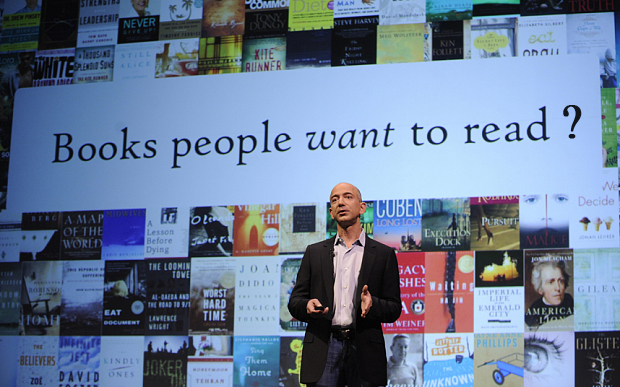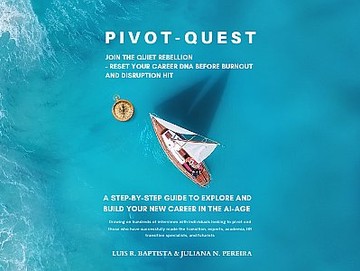
Introduction
The past decade has brought enormous change and upheaval within the publishing industry. Landing a book publisher is more frustrating and convoluted than ever. With traditional publishers merging or shutting their doors, sales numbers of print books more unpredictable than ever, and the pathway to becoming traditionally published increasingly narrowing for debut authors, it’s unsurprising that alternative methods like self-, hybrid, and independent publishing, as well as crowdfunding as a viable option, have graduated to some degree of sufficient standard to meet their desires.
As the introduction of ebooks has ballooned the number of books published each year from around 300 thousand to essentially millions, the market has been fractured by a flood of low-quality unsuccessful books produced by these same self-, hybrid, and even some independent publishers.
Most authors find themselves trapped between a restricted, more respected, and certainly more exclusive path of traditional publishing and the more-often-than-not financially fraught, less credible, and certainly more attainable path of these alternative publishing options.
The Problem With Traditional Publishing
One of the greatest challenges facing traditional publishers is that while the gatekeepers eliminate heaps of time with economies of scale filtering methods, it’s also a woefully ineffective method for discovering and nurturing high-quality literature. The typical literary agent may only accept a half percent of all submitted manuscripts.
Read How Not to Get Your Book Published
The reasons why a manuscript might be rejected can range from the brutally pragmatic to the blatantly unfair. The highly limited market for new print books, just 300k per year across all publishers and genres, requires agents and editors to be ruthless in their selections. They often limit their choices to books that they believe will earn over $50k in paid advances to authors (of which, the literary agent earns 15%). Brilliant, beautifully-written books less worthy of conventional or commercial success, are often rejected simply because they won’t earn those gatekeepers a sufficiently impressive paycheck.
Manuscripts with diverse content are also significantly less likely to be selected for traditional publication. Studies show that only 11% of published children’s literature feature any kind of “multicultural” content. In an industry that’s 79% white and 88% straight, it’s unsurprising that the types of books that do not appeal to agents and editors reflect only a small percentage of the readings published.
The Problem With Self-Publishing
In recent years, there has been an explosion of platforms where authors can self-publish their books without requiring anyone’s approval. The obstacles between aspiring writers and obtaining publishing deals has drastically decreased or become non-existent, for better or for worse. For authors, it means no book they write can be killed off for being too unconventional, risky, or brave, before it even reaches readers. It also means that no book can be killed off for being poorly written, offensive, or sloppy. A lot of bad books are flooding these new platforms, stripping away all the conventional barriers to publishing deals, both unreasonable and reasonable, leaving talented authors freed from traditional gatekeepers but struggling to distinguish themselves from the less-skilled authors churning out poorer quality work.
Self-publishing is especially challenging for talented non-fiction authors. If anyone can declare themselves an expert on a topic and publish a book about it then becoming a published author can no longer offer the same meaningful credibility or prestige. Self-published authors are fighting an oversaturated market; an average of 1713 books were self-published every day in 2015. Amazon alone has over 4 million ebooks in its Kindle store. Even if authors overcome these barriers, they often still struggle to be financially successful. Authors who choose the “free” route through e-publishers can expect to lose roughly 50% of their royalties even while personally funding most of the services offered by traditional publishers. Self-publishing authors are also expected to price their books very cheaply, often charging no more than $.99 or $1.99. Offering books for free or low value to penetrate the market has become a standard practice, further solidifying the fact that half of self-published authors make less than $500 per year.
Authors can turn to [self-] service publishers who offer editing and marketing to help authors improve and promote their books, but these services tend to cost authors dearly. One very popular self-publishing company, charges $2899 for a publishing services package that traditional publishers provide for free. With an average royalty from them listed as $1.60, a self-published author would have to sell over 1800 copies before they saw any profit. Statistically, that is a highly unlikely goal for a self-published author to reach and a travesty on the publishing industry. Self-published books sell an average of 50 copies in their lifetime, suggesting an average loss of $2819.
Unless self-published authors have shown relevant traction with sales, or approach self-publishing with a source of external funding, they will very likely never recoup the money they spend self-publishing and promoting their books. This creates a system rife with disappointment, exploitation, and poor decision making.
The Crowdfunding Model
Some authors have turned to crowdfunding as an alternative. Crowdfunding platforms allow authors to gather sales or pre-orders before funding, publishing, or even writing their manuscripts. Cecilia Perez-Matos, the first openly lesbian daughter of a president, earned over $6,000 in pre-orders for her memoir on surviving gay-bashing, political coups, and cancer. Bioengineer Melissa Stangl earned over $15,000 in pre-orders for her treatise on the scientific and spiritual qualities of the psychedelic plant medicine called Ayahuasca. Silicon Valley entrepreneur Ajit Nawalkha earned over $23,000 in pre-orders for his coaching handbook, and got picked up by an independent publisher which previously published 14 NY Times bestsellers — before writing a single word of the book.
While still in infancy book crowdfunding has the potential to delightfully combine advantages of both traditional and self-publishing. It is more accessible and inclusive than traditional publishing, and offers more credibility and financial safety than self-publishing. Most importantly, crowdfunding caters directly to independent publishers and small presses < a sweet spot when it comes to getting better book deals.
In an industry notoriously hostile towards first-comers, crowdfunding is helping debut authors successfully break through into the world of book publishing by demonstrating their market viability and engaging new readers, without having to jump through hoops. Crowdfunding sites focused on book publishing can provide traditional gatekeeper services without the traditional literary agency fee. More than that, they allow authors to actually get discovered by traditional and credible independent publishers.
Crowdfunding sites like Publishizer recruit diverse authors rejected by agents or who lack know how about the traditional publishing path. With their growing list of publisher connections, they can take an alternative approach to landing book deals and help acquiring editors make profitable acquisitions in the process. Further, editors are able to work with these less risky authors whose manuscripts have already proven readership with sales and obtained publisher interest.
Crowdfunding turns publishing into a meritocracy that allows authors to prove they belong with the previously chosen (however thoughtless) traditionally published authors out there.
Conclusion
While traditional, self- and hybrid publishing are not inherently flawed business models, they’re a poor fit for authors who don’t have the resources or audience to make their efforts pay off. Crowdfunding allows authors to fund the costs of publishing their books, build a loyal readership in a hyper-competitive industry, and land a traditional book deal without the traditional agent fee. Publishizer, for instance, earns a percentage of early stage pre-order sales rather than taking a cut of paid advances, future book royalties, or any other part of the publishing deal.
Traditional publishing suffers from too many narrow-minded gatekeepers; self- and hybrid publishing suffers from a lack of gatekeepers. Crowdfunding simply allows authors and their books an alternative risk-free approach to get their books discovered and published on their own terms.
About us
Publishizer is a NYC-based startup and crowdfunding platform that’s helped hundreds of authors get published. Authors have used Publishizer to earn over $1 million in funds. Publishizer uses proprietary software to query your proposal to a targeted list of acquiring editors from traditional publishers. We pride ourselves on working with world-class thought leaders, speakers, coaches, investors, and people doing interesting things.

